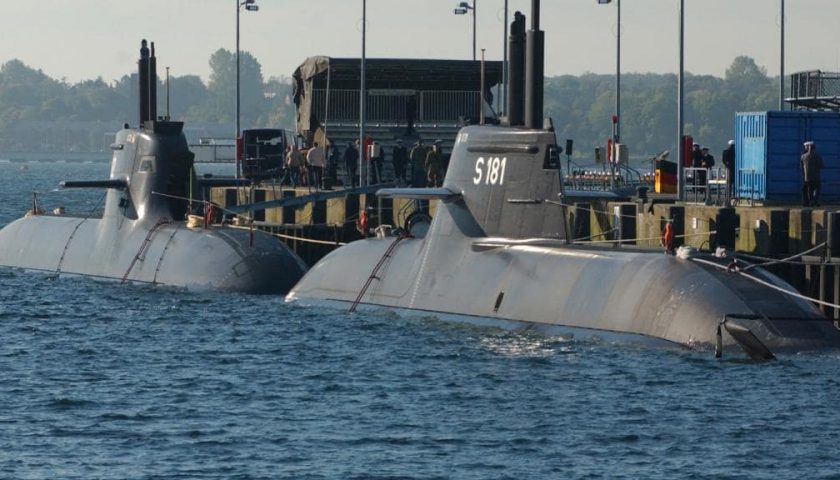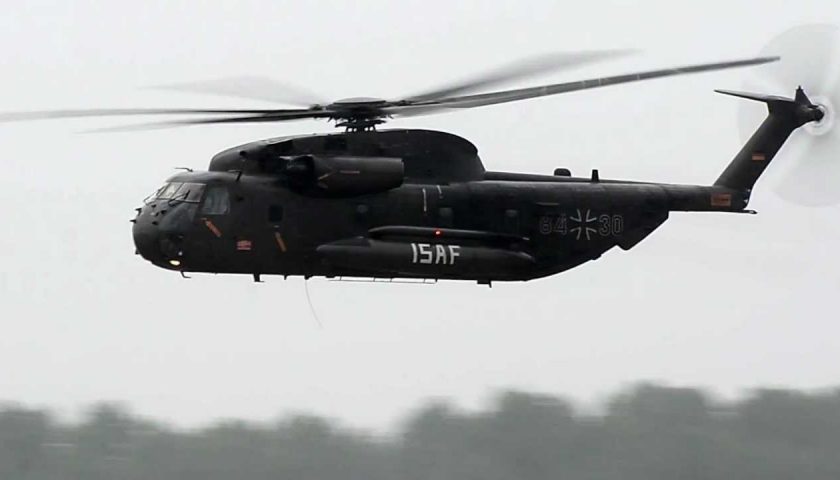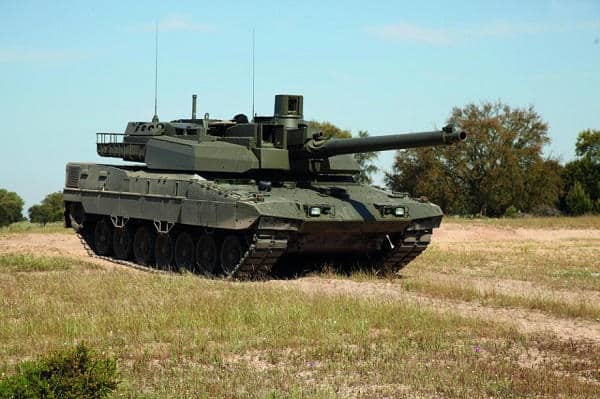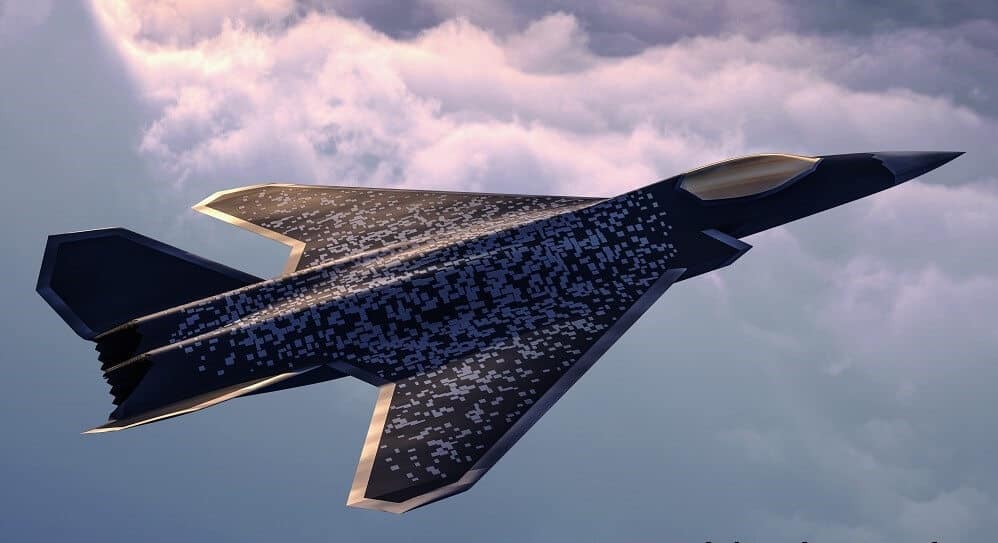A few days ago, Forecast International analyst Daniel Darling published an article discussing the impact of the current coronavirus outbreak on German defense spending in the years to come. Beyond the gloomy inventory drawn up by Daniel Darling, one can wonder about the programs that could suffer the most from any cuts in spending by the German Ministry of Defence.
Economic slowdown and reduced defense spending
In terms of health crisis management, Germany is one of the European countries that best manages the epidemic of Covid-19 which is currently hitting the planet. The country indeed has a health system relatively unscathed from budget cuts and an industrial infrastructure to provide medical equipment to contain the spread of the virus.
However, like other countries in the world, the good management of the health crisis by the German authorities will not allow the country to escape the economic consequences of the epidemic. To anticipate the impact of the epidemic on the German economy, Daniel Darling bases himself both on the elements known today and on a comparison with the economic crisis of 2008. And the conclusions are cold in the back.

Indeed, even before the first containment measures in Europe, the first quarter of 2020 seemed particularly bad for the German economy. Now, analysts are looking at a reduction in GDP of around 4% compared to last year. Germany would therefore enter a severe recession, which would be accompanied by a massive rise in unemployment. A crisis without common measure with that of 2008-2009 which had nevertheless hit the German population hard. Worse still, these analyzes generally do not take into account the possibility that the current epidemic is only the first episode of a long series, with containment measures which would follow each other with each return of the virus.
As in many other countries, the German federal government has already announced that it will release several hundred billion euros of funds to support the real economy. Constitutional limitations preventing the maintenance of a structural deficit above 0,35% of GDP have also been suspended. Unfortunately, in the medium and long term, everything suggests that the German and European economies will take time to recover.
In a context of recession, European governments will necessarily have to make savings but also review some of their priorities, in particular by increasing their spending in the field of health and internal security. As with every crisis, defense spending could then become a budgetary adjustment variable. And this is particularly the case in Germany, where military issues arouse little public support. After serious budget cuts and administrative restructuring between 2008 and 2010, the Bundeswehr seemed to be slowly regaining a decent format and efficiency. So many efforts that could be reduced to nothing for a long time.

At best, it would seem that the gradual increase in defense spending should stop. The Ministry of Defense should then be content with a stable budget, which would still consolidate the gains, even if some programs were to see their ambitions reduced. However, it is likely that the German defense will largely pay for the country's economic reconstruction efforts with a net reduction in credits granted to the armies. In any case, some of the main German defense programs will have to be reduced, delayed, restructured or simply canceled.
A threat to German and European defense programs
In a context of lasting recession, Germany will find itself faced with a double contradictory imperative. On the one hand, it will be necessary to encourage local industry to maintain it over the long term, which implies making heavy expenditures without there being any immediate economic return. On the other hand, it will be necessary to limit the country's deficit as much as possible, and therefore heavy spending.
Even if defense spending is reduced, not all of it will be stopped, and choices will have to be made in which programs to maintain and which to cancel. To support the German defense industry in the long term, the ideal would be to order armaments developed and produced in Germany. To limit expenses, the purchase of equipment abroad, especially in the United States, could on the contrary be preferred, even if it responds to a short-term approach.

In all cases, however, one can imagine that programs carried out in cooperation with other European countries could be the most threatened. Indeed, the latter generally require heavy investments and are spread over the long term, without making it possible to secure national manufacturers. We saw this clearly during negotiations with Paris around the FCAS / FCAS fighter plane or the MGCS combat tank, where the Bundestag wanted to secure the position of German industrialists compared to their French counterparts. In a context of lasting crisis, the temptation to support national industrial champions will be even stronger.
Therefore, the FCAS/FCAS and MGCS programs could be among the most affected by the current crisis. On the one hand, Germany alone has the skills to develop a successor to the Leopard 2. And even in the event of continuation of Franco-German cooperation, a minimum solution articulated around the EMBT presented in 2018 by KNDS could seem sufficient. On the other hand, in terms of fighter jets, the 2040 horizon will undoubtedly seem far away as the country faces a serious economic crisis. Moreover, as in the case of the MGCS, will it be possible to justify large investments in a new fighter plane when no less than three fighters are envisaged to replace the Tornado in the current decade?

This question of replacing the Tornado could well be the first to bear the brunt of the current crisis. At the end of March, reports from Berlin spoke of a purchase of 90 Eurofighters Typhoon modernized, around thirty Super Hornets and around fifteen electronic warfare Growlers. An ambitious purchase, which would have strengthened the capacities of the Luftwaffe. In the coming months, it will be necessary to see what follow-up Berlin intends to give to this idea, but everything suggests that it will probably not be possible to opt for a triple fleet of combat aircraft while funding the development of the FCAS. Likewise, CH-53 Heavy Helicopter Replacement Program could be delayed or simplified, which could favor the competitor offering the most economical helicopter to buy, in this case the Boeing CH-47 rather than the Sikorsky CH-53K.
Finally, it will be necessary to see whether the German armies will have the means to continue their purchases and deliveries of expeditionary equipment, such as the A400M transport aircraft, the future MKS-180 frigates or even the last two Type 212 submarines? In any case, choices will have to be made, and they will undoubtedly directly affect German and European industry.

